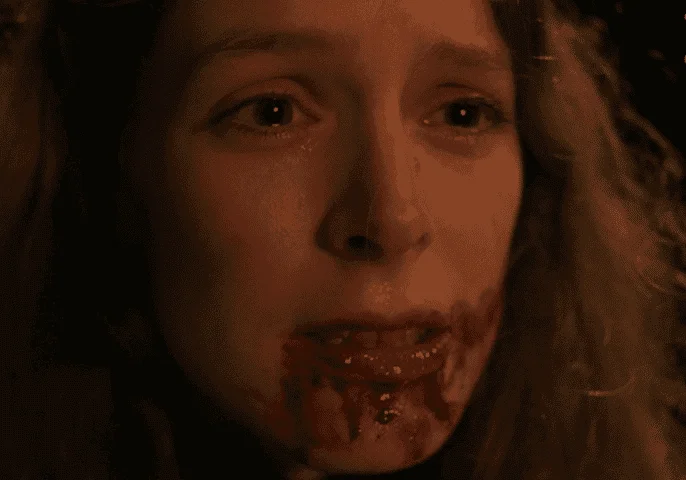
Let’s cut to the chase here: we’re big supporters of short film as a medium here at the site, but whether you’re a regular reader or not, surely you’d agree that the presence of short films is of tremendous benefit to any film festival. The storytelling is pared back by necessity in a short film – some are only minutes long – but flair, ingenuity and style are very much still present. Fantasia’s Small Gauge Trauma package is a great way to see the evidence of that. Consisting of variously humorous, disturbing and otherworldly snapshot stories, the variety and vision on offer will provide something for everyone; should you be attending a festival later this year, then you may be lucky enough to see a few of these titles for yourselves. Bear them in mind! And seek them out!
Cruise is a very dark satire about the world of work, inviting audiences to consider the feelings of the telemarketer you would probably be inclined to dislike and ignore. We’ve all done it; whatever claims they make, we doubt they could ever be true. Cruise starts with a very nervous telemarketer doing his level best to give away tickets for a Hawaiian cruise – yes really – but no one believes that he really has one to offer. Why so nervous? If workplace appraisals and targets are enough of a bind, then consider what else could be going on behind the scenes to make the guy making the calls work extra hard; these ‘market forces’ are brutal. Cruise is a funny, cynical story with sharp touches, plus a protagonist you instinctively like. You only want the best for him.
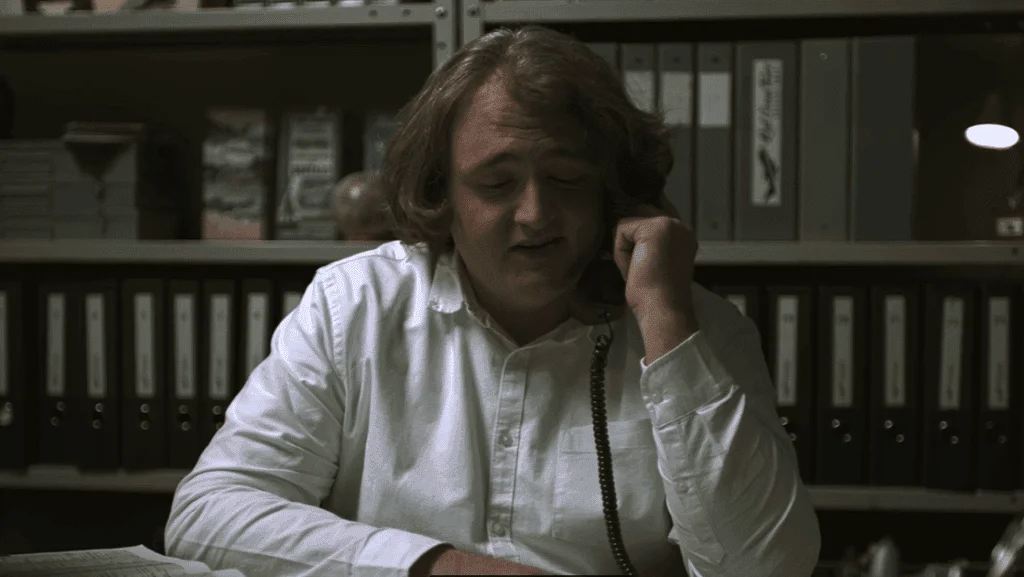
In Good Boy, a dogsitter arrives at a house with little idea of the panicked packing going on upstairs. The couple are on their way out of the door before the sitter can really ask too many questions, but a glance around the place reveals that the household seems to be run for the benefit of the (very cute) dog. “Dog people”, right? And the dog seems…actually, what is up with the dog? Good Boy teases out a few horror tropes – clearly it knows horror well – and it blends these with a very funny, very physical storyline, all whilst gently mocking a few social stereotypes along the way. Nicely done.
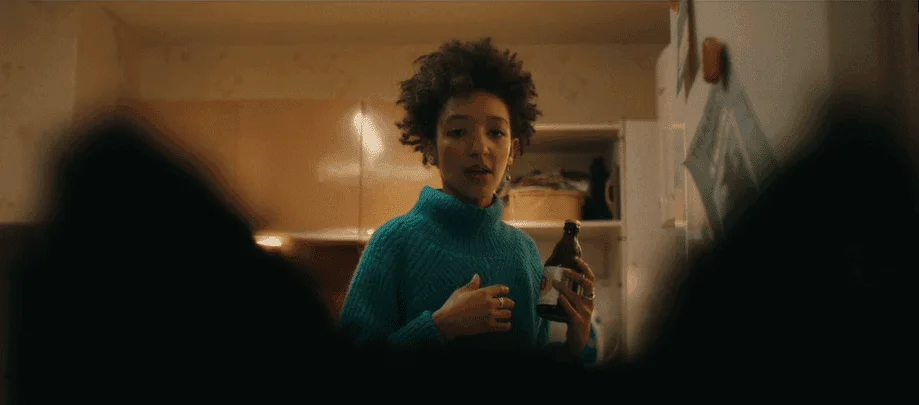
Scooter takes a few unexpected twists and turns – in itself a feat, given the running time – but it also hands out some much-needed comeuppance, good and bad, to its main characters. We start with a quarrelling couple, leaving a party thrown by his employer: he, Heston, isn’t pleased with girlfriend Adrienne’s behaviour at the party, but we can soon read through the lines: her behaviour was entirely innocuous, and he’s obnoxious – so much so that, when she fails to apologise adequately, he drives off and leaves her in the middle of a suburban area with no way of getting home. So she grabs a deserted kid’s scooter, and heads off on it. If that feels like light relief after being in Heston’s company for even a few minutes, then be assured that the rest of her evening unfolds into something even weirder. The film manages some adept bait-and-switch moments and some enjoyable redemption, too, which sees Adrienne move from downtrodden to assertive.
Rooted is an interesting film: it has a wealth of ideas, each of which has its own context and back story, but it – just about – manages to compress these down into a succinct short film, one which raises some uneasy, creative ideas about a particular modern preoccupation. Kay (Nican Robinson) is a musician; his ideas of heritage are clearly important to him, as they find expression in his music. However, it seems he’s gone a step further by seeking the services of a DNA analysis firm called Rooted: we see the results come in, which not only assure him in detail of his African heritage but also include a gift – a beautiful West African tribal mask. He can’t resist trying it on, but what he sees when wearing it disturbs him; he attempts to set it aside, but girlfriend Sky (Riley Dandy) wants to know more, and her bemused outsider’s curiosity leads to a crisis for both of them. Rooted examines the place between past and present, exploring our often flawed vantage points on the latter whilst presenting an uneasy, alienating horror.
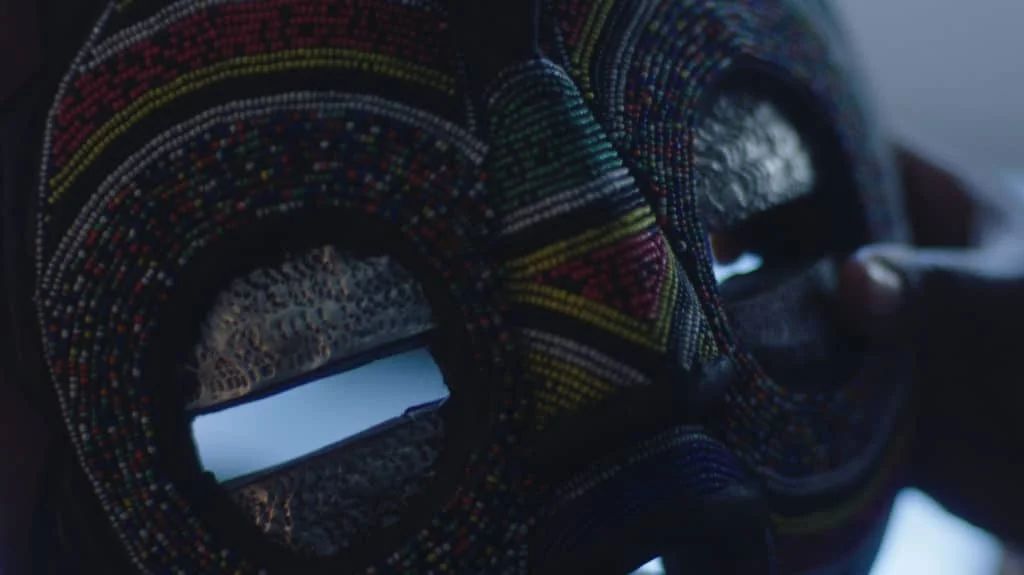
Breathe is, coincidentally, another story which examines the relationship between heritage, ethnicity and self, again through supernatural means. In a devout Christian household, a young girl, Justina, is tasked with overseeing an exorcism: we first of all hear her, intoning a prayer to herself, just as if she’s been directed to learn it by rote. The exorcism is a frightening place for a child, particularly given what the possessed woman claims out loud, but Justina takes ownership of it, even if to bring things to an end. But this means more and more pressure for her. The film focuses closely on Justina; clearly she wants a normal life, and a determined performance by the lead actor draws you to her side. You want redemption for her, on her behalf, and also for her to break away from the weight of familial, spiritual and social expectations which steal her joy.
Darker (Donkerster) is probably the most successful and compelling of all the films in this block, at least from this reviewer’s perspective: whilst utilising some recognisable elements of magical realism, it carefully builds a sober, dour mythology of its own. It is weighty, aesthetically pleasing and compelling. The film starts with a bedside story: Rhena (Adriana Bakker) hears from her father of a tree called ‘Atlas’ which, he tells her, collects the stories of all living beings; this is why the dying seek it out, to preserve something of themselves. He tells her how she can listen to their stories. But that same night, Rhena’s father walks into the woods himself, and does not return. An absorbing performance from Bakker, whose love for her father obliterates all other concerns, leads the audience through a strange and engrossing array of liminal spaces; it is a sensitively-written and shot story, with much to recommend it.
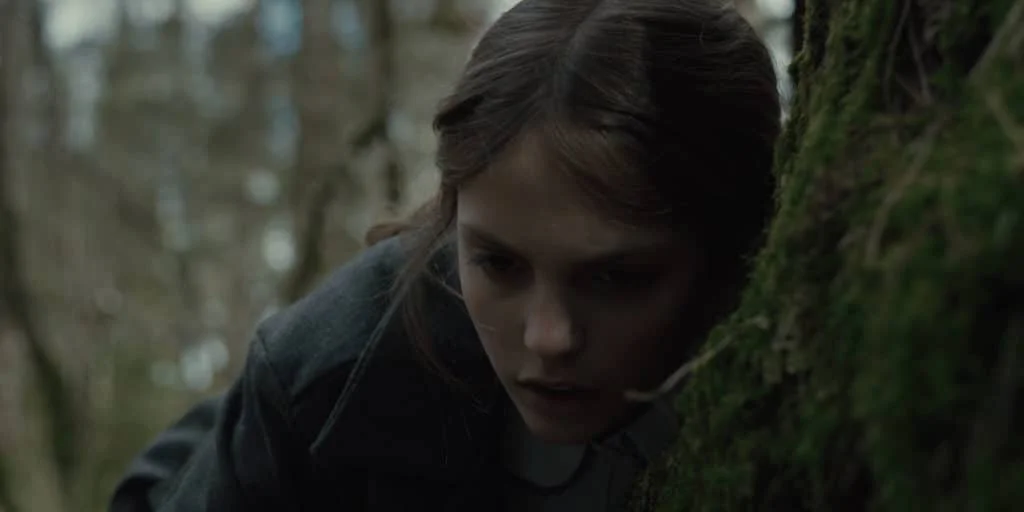
I Call Upon Thee starts innocently enough, but manages to ratchet quickly through the tension until it ends up somewhere seriously unpleasant; it goes places which will surprise you, condensing down every cautionary tale and piece of folk wisdom on occult practice into one sharp, unsettling place and time. We meet sisters Nia (Anna Cooke) and Jo, the younger sibling (Asher Bryans), on their way home: they are reciting through some sort of invocation which Nia ‘got from a girl at school’. It all sounds innocent enough, like something someone could have picked up from The Craft or similar, and Nia keeps getting at Jo for getting it wrong. Given their home life, this seems like some harmless escapism for the girls, but hang onto this question, asked by Jo: what if it works? My word, this is a bleak, acerbic story. It has vivid touches and visual flair, but ultimately it gets incredibly dark, particularly having established this little family as essentially sympathetic and normal. It’s a very effective use of the running time available.
Hysteric is technically and visually excellent, though it feels like more of a calling-card than a fully-formed story in its own right. What it does do exceptionally well, though, is to generate tension. Invoking the paranormal phenomenon of ‘The Hum’ – a mysterious noise heard by some people, in whom it has been reported as causing physical and psychological symptoms – we shift to coastal Oregon. A little girl has been disturbed by a strange noise; she looks out at the lashing storm and the slowly-cycling light of their lighthouse tower, but soon determines that the noise came from inside, not outside. Ever-so-slowly, she makes her way across the landing, with the camera at her shoulder (we usually see the world from this little girl’s point of view) – and then the pace shifts. Her discovery of the source of the sound creates a rapid upsurge in the film’s tension and graphic horror content; linking ‘The Hum’ to the event provides some rationale for what unfolds, without explaining it away.

Finally, Lucienne in a World Without Solitude – the longest film here at around thirty minutes – is a strange, unsettling deliberation on selfhood. Starting with a relationship breakdown, Lucienne (Stéphane Caillard) seems to part amicably enough with her boyfriend, Paul (Cédric Kahn) – but as the camera pans back, it seems Lucienne is seated with her twin sister. Paul, too, has a twin (also present). In this remote part of France – or possibly the world; this isn’t addressed – everyone is one of a twin, and people only interact with the world alongside their sibling. Anything else is treated as dangerously subversive, so when a solo man is spotted getting food late at night from the supermarket where Lucienne and sister Emmanuelle work, it’s a case for security. However, Lucienne thinks she knows who it is, and by extension, who is now without their twin. Her craving for a different sort of relationship, one she never before considered was even possible, gets her thinking about the concept of individuality, though this isn’t a straightforward story of emancipation and self-realisation. This pretty, rural town plays by brutal rules and expects only one mode of behaviour from its inhabitants. The film’s unorthodox world-building is strangely compelling.
